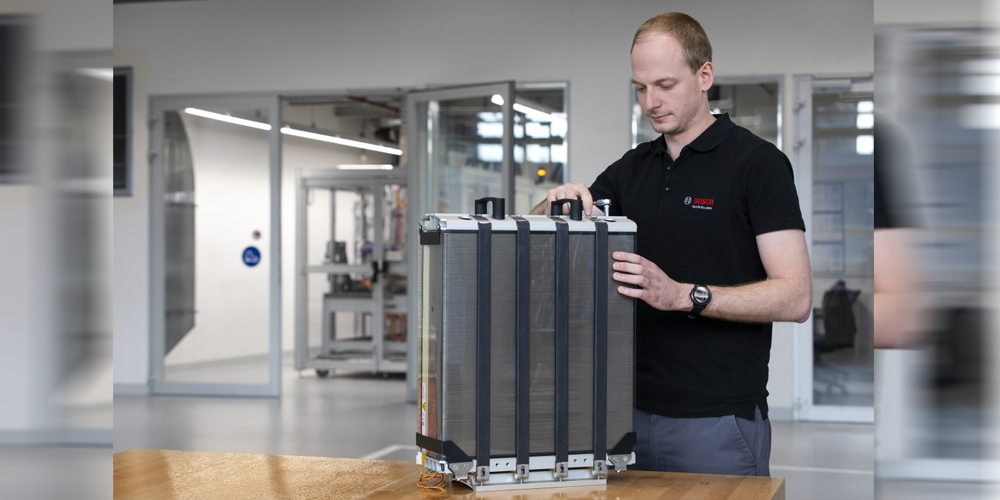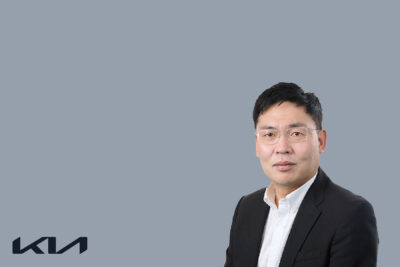Bosch enters serial production of fuel cells
The German automobile supplier Bosch announced their entry into serial production of fuel cells for trucks and passenger cars. To help accomplish this, the company has entered into a cooperation with the Swedish manufacturer PowerCell Sweden for further development and production of stacks.
The agreement stipulates that both partners will develop fuel cell stacks based on the polymer electrolyte fuel cell (PEM) to production maturity. Bosch will then manufacture the technology under license for the global automotive market. The market launch is scheduled for 2022 “at the latest,” says Bosch.
Bosch sees potential profits in the area of billions of euros in the fuel cell technology business in the long term. By 2030, the Group estimates that up to 20 per cent of all electric vehicles worldwide will be powered by fuel cells – above all in the commercial vehicle market, which, in many places, will soon be obliged to change due to binding CO2 limits, such as those being enacted in Germany.
By flexibly combining two or more stacks, the duo intends to cover the entire portfolio ranging from passenger cars to heavy trucks. “Bosch is entering the market for mobile fuel cells and paving the way for the breakthrough of this technology in trucks and cars,” Bosch said in a statement. This will, however, require a gradual reduction in the cost of fuel cell systems. According to Bosch, the most expensive component is the stack, which accounts for up to two-thirds of total costs. “Commercializing technology is one of our strengths. We are now going to take on this task with determination and develop this market,” says Dr Stefan Hartung, Bosch associate director and chairman of the Mobility Solutions division, optimistically. The expectation here is also that the costs for hydrogen fuel will decrease alongside the commercialization of the technology, as it currently often costs more than 5 euros per kg.
The companies have a solid technological base to build on for the cooperation: PowerCell, which is based in Gothenburg having split from the Volvo Group in 2008, currently has more than 60 employees and produces stacks of up to 125 kW with increasing degrees of automation, according to Bosch. The company already supplies fuel cells for prototype use in trucks and passenger cars.
For its part, Bosch also offers a comprehensive portfolio of fuel cell components, such as air compressors with power electronics or control units with sensors. “In the fuel-cell domain, Bosch already has a strong hand, and the alliance with Powercell makes it even stronger,” says Hartung.
PowerCell CEO Per Wassén adds: “With the combined weight of its clout and expertise, Bosch will provide our fuel-cell technology with the chance to gain a foothold in the automotive market.” The Swedish company has so far been involved in maritime hydrogen projects, among other things, but at the end of 2017 they were also appointed primary stack supplier for the startup Nikola Motor‘s pre-series vehicles, for example, of which Bosch is a strong partner also.
Additional reporting by Nora Manthey.





0 Comments